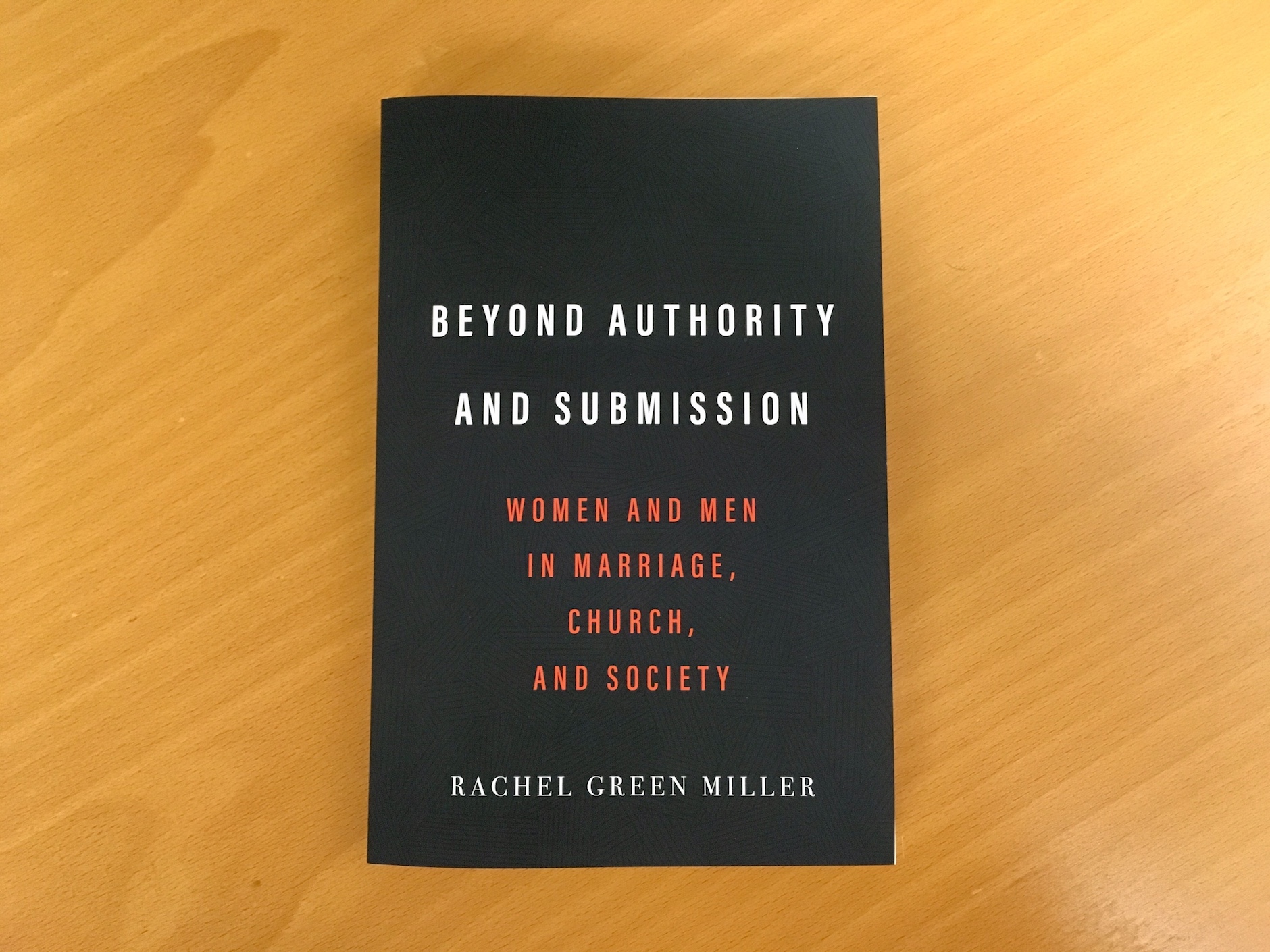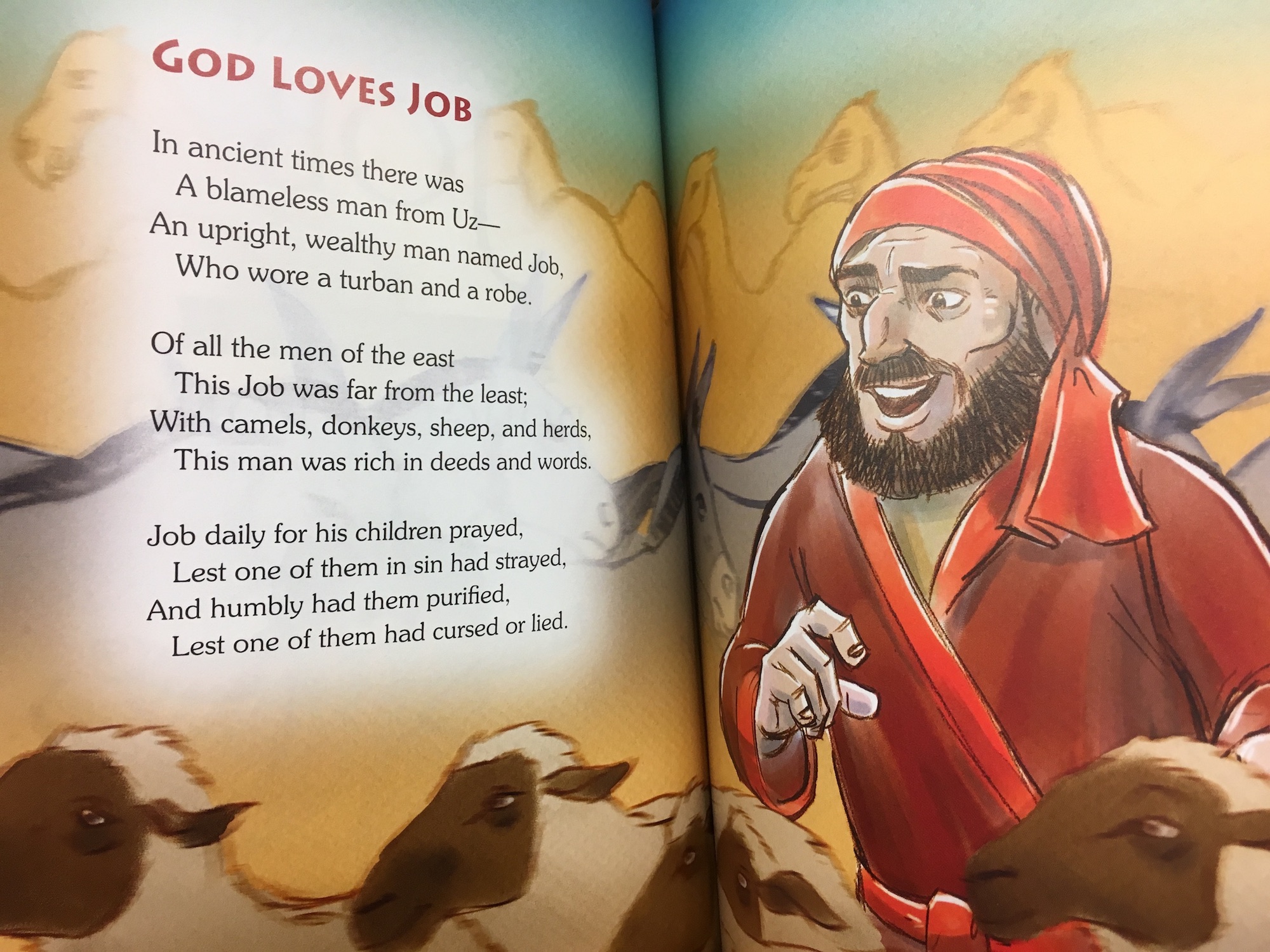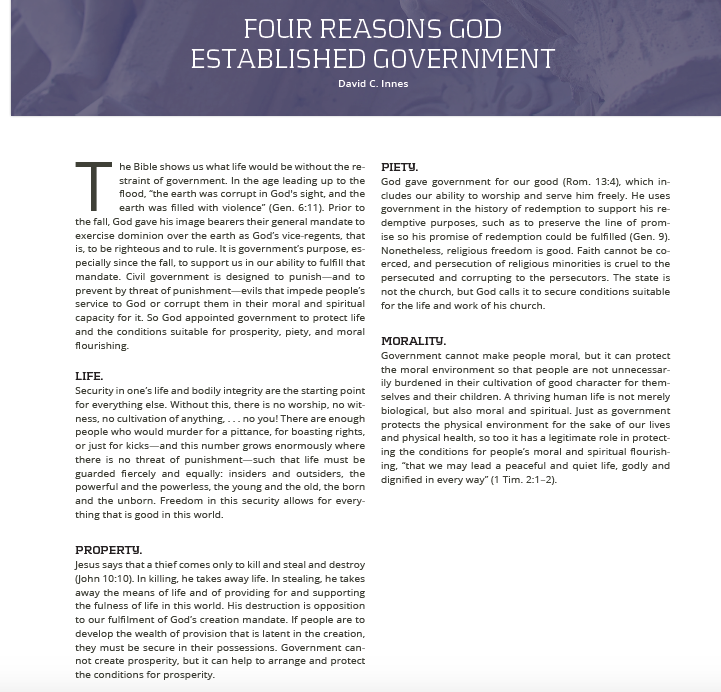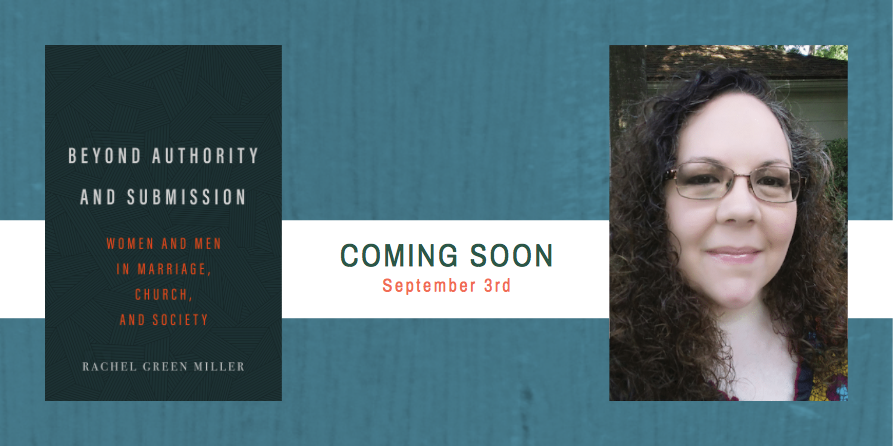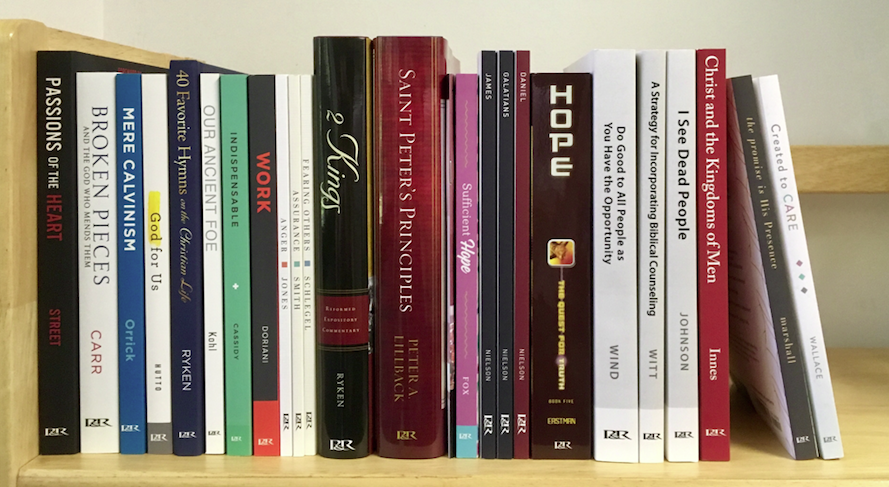Learn more about Rachel Green Miller’s upcoming book, Beyond Authority and Submission: Women and Men in Marriage, Church, and Society by reading the Introduction. This book releases September 3rd.
Introduction
Our theological views about creation, gender, and the household context affect the way we think about women’s status, roles, and contributions to the church, home, and society. —Aimee Byrd *1
Over the years, my parents have renovated several homes. One house had pink flamingo wallpaper. Another had worn shag carpeting that unnerved our dog. But my favorite was a house that had a horrible old carpet throughout the living room. Imagine our surprise and joy when we found beautiful hardwood floors underneath it.
Whenever a house has something beautiful hidden like that, I invariably ask, “Why would anyone cover this up?!” The truth is that things like hardwood can take work to maintain, so sometimes they’re covered up because carpet seems easier to handle. Other times, things like plastic couch covers are added to a house to protect the wood or furniture. But most of the time, the layers inside a house reflect changing styles. What’s fashionable today is outdated tomorrow. Once you peel back the layers of dated wallpaper, ancient carpet, dirt and grime, and chipped paint, you begin to see the timeless beauty of a house.
A CONCERNING SITUATION
In a similar way, our theology runs the risk of being trendy. This is particularly true of our beliefs about women and men. Sometimes we add a layer or two to our theology because we think our man-made rules are easier to keep. Other times we add hedges to it as a reaction to what’s going on in our culture and as a protection for what we believe. Over time, we end up with layers and layers of extrabiblical and even unbiblical ideas that cover up what the Bible teaches.
That’s why I wrote this book. I’ve become increasingly aware of what’s being taught in conservative circles about the nature of women and men and what’s considered appropriate in marriage, the church, and society. It’s troubling, and much of it isn’t biblical. In addition, I see that authority and submission have become the lens through which all of women’s and men’s interactions are viewed—even to the point that some people try to figure out if it’s okay for a woman to write a book that a man may learn from. Does a woman’s authorship create a “direct, authoritative confrontation” that could be compromising?*2
Maybe you’ve noticed these kinds of discussions too. Maybe you can’t put your finger on what’s bothering you. You may be concerned or confused—or both—by what you’re hearing. You may wonder where these ideas come from. If so, this book is for you.
Why? Because as theologically conservative Christians, we must acknowledge where extrabiblical and unbiblical ideas about women and men have permeated, weakened, and confused our teachings. We need to move beyond a focus on authority and submission in order to incorporate equally important biblical themes into our discussions, such as unity, interdependence, and service. As we do, we will strengthen our vital relationship as co-laborers in Christ.
WHO BELIEVES WHAT?
In discussions about men, women, and gender, various labels describe the different beliefs that Christians hold. The most common ones are feminism, egalitarianism, complementarianism, and patriarchy. At this point, you may be curious about where I fit in.
If you considered the four positions on a continuum, feminism would be on one end of the spectrum and patriarchy on the other. These two views of men and women are fundamentally opposed and have very little or no overlap. We will go into greater detail about the evolution of the feminist movement, but for the purposes of this discussion, feminism promotes the equality of women, believes that men and women are virtually interchangeable, and may prefer feminine pronouns and names for God. On the other extreme, patriarchal beliefs emphasize the differences between women and men and show a strong preference for male authority in all aspects of life.
That leaves us with the two middle-ground positions. Egalitarians believe that men and women are fundamentally equal but not interchangeable, and that they should “share authority equally in service and leadership in the home, church, and world.”*3 Complementarians believe that women and men are “equal before God as persons and distinct in their manhood and womanhood” and that “distinctions in masculine and feminine roles are ordained by God as part of the created order.”*4
So which am I? I believe that
- God made humans, male and female, in His own image (see Gen. 1:26–27)
- in Christ, men and women are equal before God (see Gal. 3:28)
- women and men are interdependent and should serve each other (see 1 Cor. 11:11–12)
- marriage was designed to be between one man and one woman—ideally for life (see Gen. 2:24)
- husbands are called to sacrificial, servant leadership of their wives and to love them as Christ loves the church (see Eph. 5:25–33)
- wives are called to yield voluntarily to their husbands—to submit to them as the church submits to Christ (see Eph. 5:22–24)
- only qualified men should be ordained leaders in the church (see 1 Tim. 3:1–13)
If you notice what I believe about marriage and ordination, you’ll see that I’m not a feminist or an egalitarian. And I’m not patriarchal. So am I complementarian? I used to think so. After all, I believe that husbands are the leaders of their families. I believe that wives should submit to the leadership of their husbands. I believe that ordained church leaders should be qualified men. Isn’t that what complementarians believe?
Yes, but that’s not all that complementarians are expected to believe. The complementarian movement has done good things: affirming the complementarity and equality of men and women, affirming that husbands are to lead their wives sacrificially and that wives are to submit to the leadership of their husbands, and affirming the ordination of qualified men. But extrabiblical and unbiblical ideas have been incorporated into the movement’s teaching as well. These ideas have more in common with Greek, Roman, and Victorian beliefs than with the Bible.
Not all who call themselves complementarians share these beliefs. However, because complementarianism as a movement has embraced these ideas, I’m not comfortable with calling myself a complementarian. If you are concerned as well, know that you’re not alone.
THE PURPOSE OF THIS BOOK
The topics of sex and gender are everywhere. Conservative Christian books, articles, and conferences focus on answering questions about roles in marriage, biblical manhood and womanhood, biblical sexuality, purity before marriage, pornography and its effect on families, and responses to same-sex marriage, transgenderism, and a sexually saturated culture.
But not just conservative Christians are attempting to answer these questions. All around us, people debate what gender and sexuality mean. Bruce Jenner transitioned into Caitlyn. Fallon Fox, who was born a man, boxed against Tamikka Brents, who was born a woman, in a women’s division match. Colleges ask which pronouns students prefer: he? she? zhe? Gender seems to mean everything and nothing.
As Christians, we need to speak out about what the Bible teaches about women and men, the definition of marriage, and the purposes and boundaries of sexuality. But we need to be very careful about what we say. Our society needs clear teaching from the Bible. That means that we need to study the Bible and allow the Scriptures to peel back any layers of unbiblical and extrabiblical beliefs we have added. Are we making things too hard and twisting ourselves up in knots? Is there a better way? I think there is.
What the Bible teaches about men, women, and gender is both simpler and more difficult than we are often told. The Bible doesn’t give us detailed lists with bullet points to answer all our questions. Thankfully, it does give us guidelines and boundaries to help us know where to begin and how to address these topics.
We will first look at biblical themes that will help us in our discussions about women and men. Then we will look at how various historical cultures and developments have influenced our beliefs. In the second half of the book we will look at prevalent teachings about the nature of women and men and how these views affect our interactions in marriage, church, and society. We will also consider what the Bible teaches on these topics and how we can apply its truths to our lives.
I wrote this book because I care deeply about what the Bible teaches about women and men. My desire is for women and men to be co-laborers in all of life so that our families and churches will be strengthened and encouraged. Working together, we can then be a blessing to our society, which so desperately needs the truth of the gospel.
1. Aimee Byrd, No Little Women: Equipping All Women in the Household of God (Phillipsburg, NJ: P&R Publishing, 2016), 13.
2. John Piper, “Do You Use Bible Commentaries Written by Women?” Desiring God, March 27, 2013, http://www.desiringgod.org/interviews/do-you-use-bible-commentaries-written-by-women. Piper concludes that this is acceptable. “ ‘She is not looking at me and confronting me and authoritatively directing me as a woman.’ There is this interposition of the phenomenon called book and writing that puts the woman as author out of the reader’s sight and, in a sense, takes away the dimension of her female personhood.”
3. “CBE’s Mission and Values,” Christians for Biblical Equality International, accessed November 21, 2018, https://www.cbeinternational.org/content/cbes-mission.
4. “Danvers Statement,” The Council on Biblical Manhood and Womanhood, accessed November 21, 2018, https://cbmw.org/about/danvers-statement.

